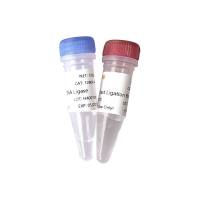Use of Quantitative Ligation-Mediated Polymerase Chain Reaction to Detect Gene Targeting by Alkylating Oligodeoxynucleotides
互联网
互联网
相关产品推荐

DDA1/DDA1蛋白Recombinant Human DET1- and DDB1-associated protein 1 (DDA1)重组蛋白Placenta cross-immune reaction antigen 1 (PCIA-1)蛋白
¥1836

SARS-CoV-2 (2019-nCoV) Spike Gene ORF cDNA clone expression plasmid (Codon Optimized)
¥4690

BRDU LABEL.AND DETECT.KIT III
¥1

Hieff NGS®快速DNA连接模块(DNA Ligation Module)
¥2945

Fibrinogen Gamma Chain重组蛋白|Recombinant Human FGG Protein
¥1790
相关问答

